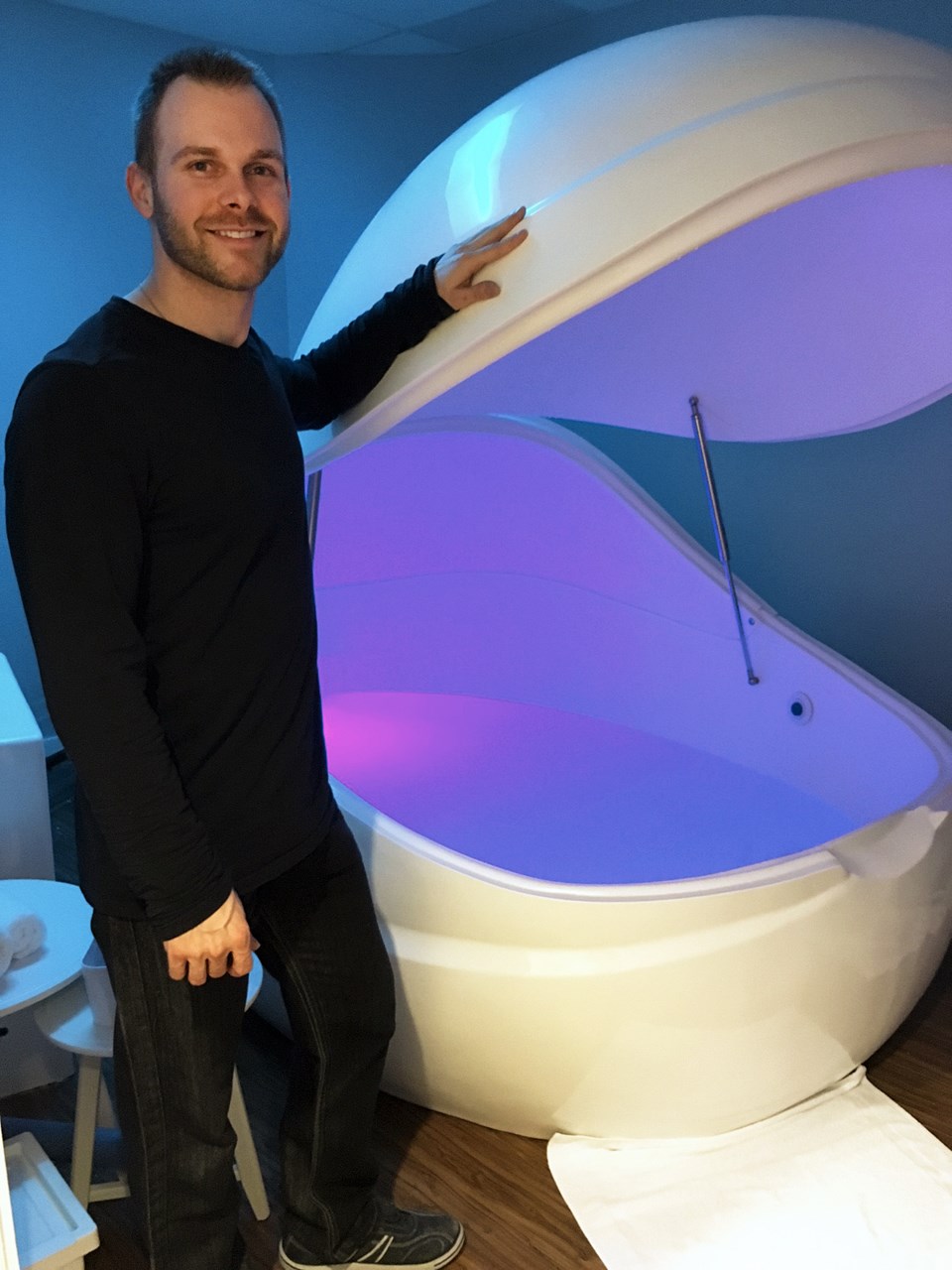To say I was skeptical would be an understatement – the idea of spending an hour or more floating naked in a lukewarm bath of Epsom salts in an enclosed tank wasn’t very appealing.
But sometimes you’ve got to do unpleasant things in the name of journalism, so off I went to my first session at Float Sense. As it turns out, it wasn’t unpleasant at all.
Float Sense opened its first location in Metrotown last July. Floatation has slowly been growing in popularity in Canada, but Float Sense co-founders Randy Nyholt and Craig MacGregor hadn’t anticipated how well their fledgling Burnaby business would do.
Float Sense turned a profit by the third or fourth month of operation, a hefty feat, according to Nyholt, considering the high overhead costs required to open the centre. Maintenance costs can also add up. Each float tank contains about 1,000 pounds of Epsom salts, and it’s this super-saturated water that keeps clients afloat.
And no, Float Sense doesn’t have a massive monthly water bill – they only change the water every six months. After each session, the water is filtered three times and then cleaned using UV rays.
The salts are dissolved in water, which is then heated to 93.5 degrees (skin temperature). The result is a slimy and sandy feeling against your skin when you enter the tank.
After a short while it’s almost impossible to tell which body parts are under water. The salt eventually forms a crust on the parts of your body that are exposed, but that’s only noticeable if you splash around. (I admit, I did splash and spin around in the tank during my 60-minute session. Oh, and by the way, typical sessions are 90 minutes long at Float Sense.)
The float tank, called a Dream Pod, was a large, bubble-shaped shell that didn’t feel confining when closed. In fact, with my arms and legs outstretched like a starfish, I could barely touch all sides of the tank at once.
I had my float session at Float Sense’s newest location in North Burnaby, at 3764 Hastings St., which opened earlier this month and already has attracted some new clients.
And on Valentine’s Day, both locations were fully booked from 9 a.m. to 9 p.m.
Despite the local business’ popularity, floatation still doesn’t have the same reputation in Canada as it does in other parts of the world, particularly the United States and in Europe, Nyholt said.
It doesn’t help that floatation is not covered by medical insurance providers, but Nyholt is optimistic that could change in the next year or two. He’s even signed Float Sense up as a participant in a UBC Okanagan study looking at the benefits of floatation therapy and whether personality influences how floatation makes certain people feel.
Matteo Gerwin, an undergraduate student, is leading the study with the help of Mark Holder, a psychologist and associate professor at UBC Okanagan.
In 2014, Holder conducted another study on floatation therapy that evaluated the well-being and/or ill-being of participants before and after a 90-minute float session. Holder’s research indicated that most people experienced a feeling of well-being after the session, and many reported that that feeling lasted as many as seven days after the session, he told the NOW.
Despite the positive outcomes, Holder said more studies need to be conducted before floating is recognized by the B.C. Health Professions Act as a designated health profession.
Float Sense sessions range from $40 to $70 per session. There are also shareable monthly float packages available. For more information, visit www.floatsense.com.
Relaxing, but does it work?
- Many float centres claim floating can improve creativity and help participants enter a theta brainwave state (the brain state experienced during REM sleep), but Holder says this is unproven.
- Most studies on floating were conducted using a small pool of self-selected participants;
- Psychologist and UBC associate professor Mark Holder says more empirical research is needed to fully prove the health benefits of floating;
- Some say floating has the best effects if people go in with positive expectations, but Holder says his research showed that was only true for some of the participants;



